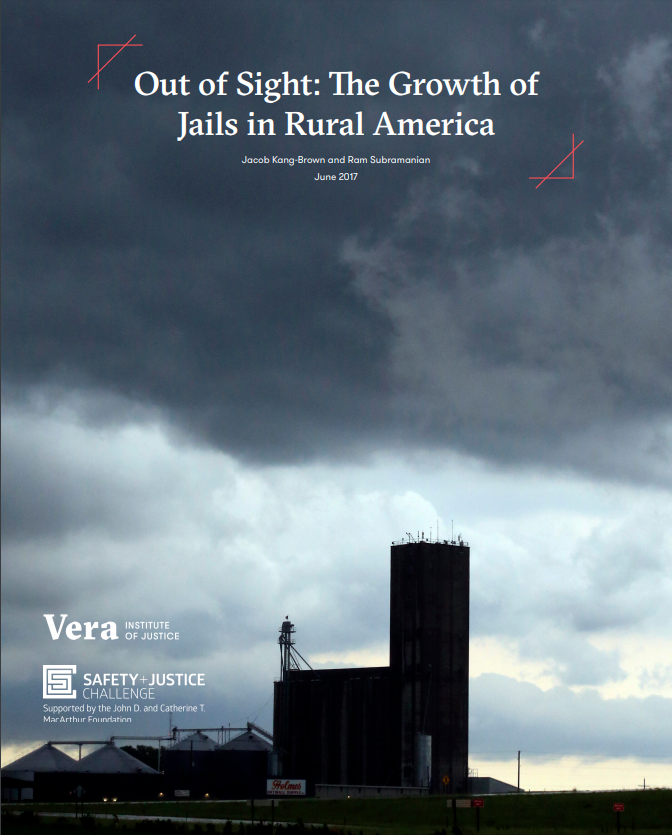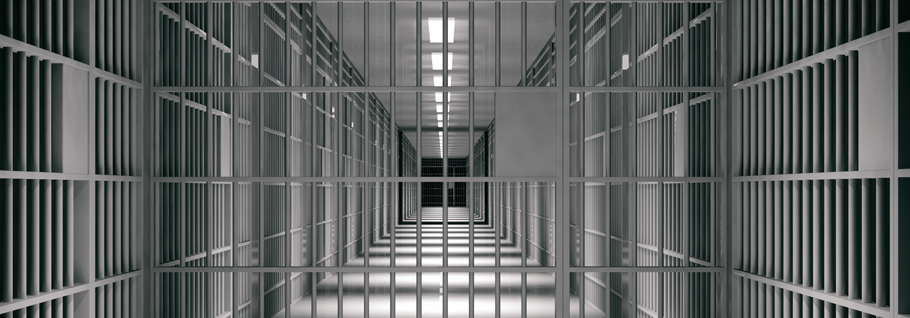
The Growing Jail Crisis in Rural America
Editor’s note: CHN Intern Rebecca Isaksen is a senior at Brigham Young University, majoring in Psychology and minoring in Political Science and Business Administration.
James Burns was 15 years old when he was sentenced to prison as an adult. The adult unit that Burns was assigned to repeatedly placed him in solitary confinement. He described the solitary confinement experience as “truly horrible.” Burns shared stories of individuals who suffered great psychological distress from solitary confinement and reported that he was lucky to come out of it and still be able to be a functioning member of society. Dreama Caldwell only spent a few days in jail, but her experience still haunts her to this day. She recalls sleepless nights on the floor where all she could hear were women crying and howling. “The jail experience is something that I am still unpacking five years later,” Caldwell said.
 Burns and Caldwell were two panelists at a recent Vera Institute for Justice event entitled, “America’s Hidden Rural Jail Crisis.” This panel discussion brought together experts with various connections to the criminal justice system to address the current rising incarceration population in rural America. Over the last few years some parts of urban America have been working towards criminal justice reform, including decreasing jail capacity. Since 2013, large metropolitan areas saw a jail capacity reduction of 18 percent. However, rural counties increased their jail capacity by 27 percent and small and midsized metropolitan areas had a 7 percent increase. So even though urban America is making steps in the right direction of criminal justice reform, rural America seems to be taking steps backwards.
Burns and Caldwell were two panelists at a recent Vera Institute for Justice event entitled, “America’s Hidden Rural Jail Crisis.” This panel discussion brought together experts with various connections to the criminal justice system to address the current rising incarceration population in rural America. Over the last few years some parts of urban America have been working towards criminal justice reform, including decreasing jail capacity. Since 2013, large metropolitan areas saw a jail capacity reduction of 18 percent. However, rural counties increased their jail capacity by 27 percent and small and midsized metropolitan areas had a 7 percent increase. So even though urban America is making steps in the right direction of criminal justice reform, rural America seems to be taking steps backwards.
Panelist Dr. James P. Reed, a psychologist who works in rural Arizona, explained that part of the problem is the lack of mental health services in these rural areas. Dr. Reed recounted that he has over 350 patients, some of whom must drive over an hour in order to meet with him. “I am just so overwhelmed and I feel stretched thin,” he said. He added that because of a lack of mental health services, few people within the criminal justice system actually have experience or connections with mental health counselors. Dr. Reed told the story of one of his younger patients diagnosed with severe schizophrenia. The young man was doing well when he was receiving treatment, but after being incarcerated in a general population prison which provided no mental health treatment, he acted out. This behavior led to a punishment of solitary confinement and Dr. Reed said that as a consequence of this the young man is now experiencing severe psychological trauma.
Solitary confinement has detrimental psychological effects and is especially harmful to those who already suffer from mental health problems, as many incarcerated individuals do. In state prisons, 73 percent of women and 55 percent of men have at least one mental health problem. The numbers are similar in local jails. A report by the Center for American Progress states that those who experience solitary confinement report sleep deprivation in addition to psychiatric decompensations, hallucinations, and behaviors relating to self-harm. There have also been devastating reports of suicide.

These numerous detrimental psychological outcomes are one of the reasons major cities like New York and Los Angeles have been taking important steps towards reforming their criminal justice systems. This has led to lower rates of incarceration in urban areas, but as mentioned earlier, this has not spread to rural and suburban areas or mid-sized cities.
Panelists at the Vera event urged attendees to hold their elected officials accountable with regard to criminal justice reform. Panelists broadly agreed that more funds are needed for mental health services in order to better prevent mentally ill people from becoming incarcerated in the first place. One of the main issues with prison reform is that people’s experiences with the justice system are still largely misunderstood; this is especially the case when it comes to the mentally ill who are incarcerated. Panelists Caldwell and Burns shared stories of overcoming their past incarceration and paving successful lives for themselves, despite the system working against them.
Jasmine Heiss, Campaign Director for In Our Backyards at the Vera Institute of Justice, implored, “We need to redefine what investments in public safety look like.” Providing help and the necessary resources for those incarcerated or even before they enter the system will always pay off in the long run. Two years ago Burns, now a film director, voluntarily went back into solitary confinement for 30 days and live-streamed his experience in order to help people understand what the experience is like. He added his plea at the end of the event: “People need help. They don’t need to be punished.”

